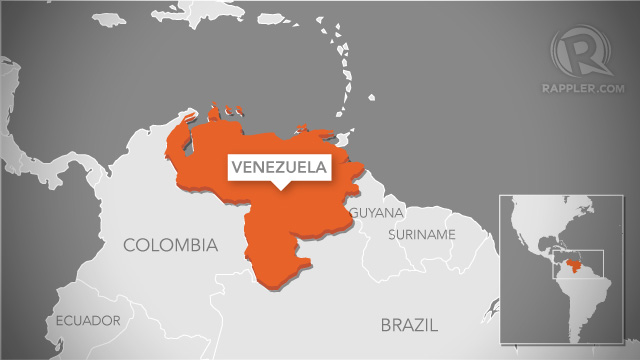SUMMARY
This is AI generated summarization, which may have errors. For context, always refer to the full article.

CARACAS, Venezuela – Venezuela’s Supreme Court on Wednesday, April 17, ruled out a recount of a disputed presidential vote won by the late Hugo Chavez’s political heir Nicolas Maduro, upping the pressure on his rival to concede.
Tensions have been rising in Venezuela since Sunday’s (April 14) contest to replace Chavez, who died last month aged 58 after a long battle with cancer. Maduro was named the winner, narrowly defeating opposition leader Henrique Capriles.
Seven people were killed and dozens more injured in post-election violence in the oil-rich South American country on Monday, April 15, — mainly in big cities, where Capriles did well. Each side has accused the other of stoking violence.
While most of Latin America has welcomed Maduro’s election win, the United States — long a Chavez target — has yet to recognize the president-elect, a fact quickly dismissed by Maduro as unimportant.
Chief Justice Luisa Estela Morales said that legally “there does not exist” in Venezuela the kind of vote-by-vote recount demanded by Capriles since the system is computerized. Capriles won 49.1 percent to Maduro’s 50.8 percent.
“When you go around demanding something which is impossible, demanding a manual recount… without a doubt what you are doing is inciting endless street fighting. And people should be held responsible for that,” said Morales.
The court is widely seen as leaning toward the leftist government set up by Chavez, who led Venezuela for 14 years, dominating political life in his country and the Latin American left.
The tough talk from the high court has opposition members worried that legal repression could be forthcoming.
Capriles said Tuesday, April 16, he was willing to open a dialogue with the 50-year-old Maduro, after initially saying the president-elect’s win was “illegitimate.”
And the 40-year-old Capriles, who lost to Chavez in October elections, has said he will present a petition to the electoral board for a full recount based on documents he says demonstrate irregularities in Sunday’s balloting.
The national electoral council has however already validated Maduro’s victory.
On Wednesday, supporters of the late Chavez and his oil-funded social programs rallied under the nose of Capriles outside his residence in northern Miranda state, calling for him to be removed as the state’s governor.
“The people’s votes are what make someone Miranda governor, and they are what removes someone as governor too,” Capriles tweeted.
Maduro, 50, a former bus driver who worked his way up in politics and spent a decade in Chavez’s shadow, is to be sworn in Friday to complete the late leader’s six-year term, which began January 10.
The government stepped up pressure on Capriles to give up and concede defeat, and said 15 countries have now confirmed they will send delegations to attend Maduro’s swearing in. Many countries in Latin America have said they recognize Maduro as the victor, except Paraguay, which wants a recount.
“There is no other option but to recognize that victory,” Information Minister Ernesto Villegas told a news conference Tuesday night, in an allusion to Capriles’s refusal to throw in the towel.
Villegas denied there was anything inappropriate in the voting.
US Secretary of State John Kerry said Wednesday Washington was not yet ready to recognize Maduro, telling lawmakers: “We think there ought to be a recount.”
The White House meanwhile called on the government to protect the rights of free speech and assembly, and warned against more post-election violence.
Maduro quickly responded to Kerry’s remarks.
“We don’t care about your recognition,” he quipped. “We have decided to be free, and we are going to be free and independent, with you or without you.”
The European Union said it took note of the Maduro win but said Capriles’s complaints should be examined by the government.
Overnight, opposition supporters banged pots and pans — a typical protest in Latin America — and pro-government demonstrators set off firecrackers. But there was nothing like Monday’s violence.
On Tuesday, Capriles called off a protest rally he had convened for Wednesday, saying he did not want more violence, or to play to into the government’s hands.
He asked Maduro to calm the situation in Venezuela, which has the world’s largest proven oil reserves.
Maduro tweeted back to his rival about street demos, saying he had information that right-wing groups were “arming” people disguised in the bright red colors of the Chavez movement, and that he had alerted the police.
“I call on the people to isolate fascists and violent people wherever they are,” said Maduro. “Peace, peace,” he added. – Rappler.com
Add a comment
How does this make you feel?
There are no comments yet. Add your comment to start the conversation.